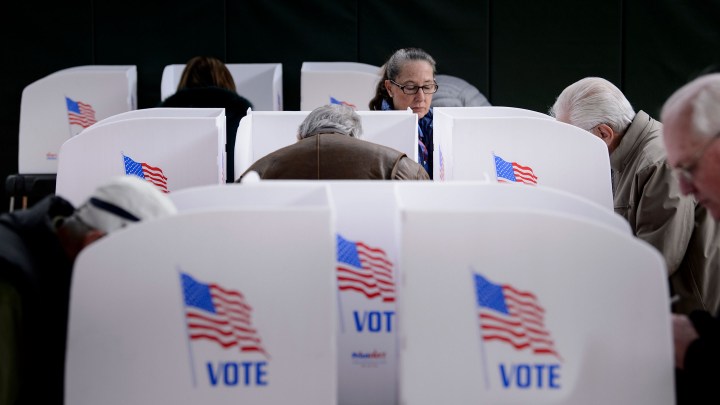
Sustained military conflicts in different parts of the world. A United States that’s sharply divided heading into national elections. Doubts about the resilience of China’s economy coming out of the worst of the pandemic.
These are just some of things we should worry about in this new rear, according to an annual report from political risk consultancy Eurasia Group. It’s not all gloom and doom, though. Also on the list is an upbeat prediction for one of the world’s most important geopolitical relationships.
Ian Bremmer is president and founder of Eurasia Group and Gzero Media. He discussed the top risks list in greater detail with “Marketplace Morning Report” host David Brancaccio. The following is an edited transcript of their conversation.
David Brancaccio: We have to start with 2024 is an election year both in the U.S., but I should point out, India, Russia, the European Parliament. But what’s your formulation here? The U.S. election, you’re calling it the “U.S. vs. itself”?
Ian Bremmer: Yeah. In fact, a war along the lines of what we’re seeing between Russia and Ukraine and Israel and Hamas because inside the United States, they see each other as principal adversaries and they don’t agree on basic facts. David, most of the elections in the world this year are actually not at all destabilizing: Russia because we know what the outcome is going to be; Sri Lanka, we just had; India, enormously popular leader’s going to get another five years; European Union, their Parliament’s going to return the same coalition. But in the United States, where both of these leaders have everything to fight over and for, this is a crisis of democracy.
Brancaccio: I was looking at this report from Goldman Sachs late last year that shows that incumbent U.S. presidents tend to win — unless there’s an economic downturn. The statistics don’t show an economic downturn. But there’s also the perception of the economy that voters have.
Bremmer: Well, incumbents aren’t usually running against former presidents. That’s No. 1. Usually the basic information environment is not contested. That’s No. 2. And usually the president isn’t 81. If [Donald] Trump wasn’t running against him, everyone would say [Joe] Biden shouldn’t be running, he’s not going to make it to 86 to finish out a second term. But all of that goes out the window when your former president that is running refused to accept a free and fair transfer of power. I mean, my God, the former secretary of defense under Trump came out and said that Trump is a clear danger to the future of democracy. That should be — in a functional democracy, that would be the top thing that you’re actually debating. That is not what’s happening in the United States right now, which tells you about the crisis that’s presently going on politically in this country.
Brancaccio: I was desperate for even more doomscrolling, at least the audio version here from you. But I see that you seem to make the case that things might be looking up for the U.S.-China relationship.
Bremmer: Yeah, the most important geopolitical relationship in the world. The Chinese really don’t want any further crisis with the U.S. because their economy is performing so badly. And the United States dealing with the Middle East, dealing with Russia-Ukraine and in the middle of an election campaign — Biden wants to manage the relationship as well.
Brancaccio: Now, artificial intelligence. I mean, this is a list of geopolitical risks. Is this the year AI gets too big for its boots and causes some kind of existential threat?
Bremmer: Not existential. And I’m a big enthusiast about AI and what it can do to help the economy globally. But this is definitely a year where the technology that is driving AI is moving a lot faster than the ability to govern it. And that means that disinformation driven by AI, especially as it impacts elections, as well as the proliferation of dangerous AI technologies in the hands of actors, both government and nongovernment, that are willing to use it to threaten national security — that is becoming a risk in 2024.
There’s a lot happening in the world. Through it all, Marketplace is here for you.
You rely on Marketplace to break down the world’s events and tell you how it affects you in a fact-based, approachable way. We rely on your financial support to keep making that possible.
Your donation today powers the independent journalism that you rely on. For just $5/month, you can help sustain Marketplace so we can keep reporting on the things that matter to you.

















